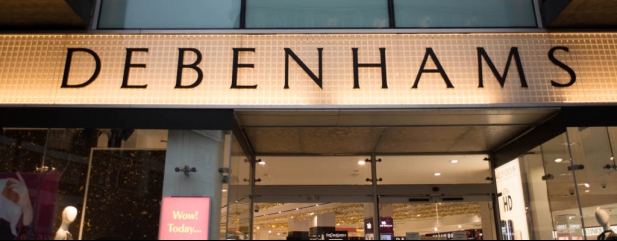Archived article
Please note that tax, investment, pension and ISA rules can change and the information and any views contained in this article may now be inaccurate.
Alarm bells ring for retail as UK sheds 730,000 jobs

AJ Bell is an easy to use, award-winning platform Open an account
We've accounts to suit every investing need, and free guides and special offers to help you get the most from them.
You can get a few handy suggestions, or even get our experts to do the hard work for you – by picking one of our simple investment ideas.
All the resources you need to choose your shares, from market data to the latest investment news and analysis.
Funds offer an easier way to build your portfolio – we’ve got everything you need to choose the right one.
Starting to save for a pension, approaching retirement, or after an explainer on pension jargon? We can help.
Please note that tax, investment, pension and ISA rules can change and the information and any views contained in this article may now be inaccurate.

According to the latest Office for National Statistics (ONS) unemployment data (11 Aug), the number of people in work in Britain has suffered the biggest drop since 2009, while the coronavirus will take a heavier toll on the labour market as the government winds down the furlough scheme.
The grim reality is many furloughed workers no longer have jobs to go back to and that has massive implications for the retail sector, where leading companies are announcing swingeing job cuts to align costs with flagging sales which are likely to worsen as consumer purchasing power erodes.
The ONS revealed that 730,000 jobs were lost across the first four months of the pandemic, based on the number of pay as you earn payrolls – a 114,000 increase in June alone. There was also a worse than forecast claimant count change reading for July with an extra 94,400 people now seeking unemployment-related benefits.
So while the UK unemployment rate remains below 4%, the true picture is distorted by a furlough scheme that is keeping people technically employed.
RETAIL JOBS BLOODBATH
Against this backcloth, the wave of job cuts across the retail and hospitality industries we are seeing is inevitable.
UK retail footfall decreased by 42% year-on-year during July, marking a 20.5% improvement on the 63% slump observed in June, according to the British Retail Consortium (BRC) and market research outfit ShopperTrak. Store visits temporarily picked up, yet retail footfall remains significantly south of levels seen before the pandemic and the outlook for many brick and mortar stores is precarious.
Ailing Debenhams is to cut a further 2,500 jobs, dealing the latest blow to the sector. The department store joined the likes of Dixons Carphone (DC), Marks & Spencer (MKS) and books-to-stationery specialist WH Smith (SMWH) in announcing job cuts, not to mention John Lewis and Boots.
In addition, the BRC-KPMG Retail Sales Monitor (RSM) for July revealed total sales up 3.2%, marking the second consecutive month of growth since the start of the pandemic. However, over the three months to July, non-food sales declined by 4.3% overall.
As Shore Capital explains: ‘The consumer outlook remains cautious with perhaps more targeted with less impulse purchases, as a result of the social distancing measures in place.
‘We have concerns around the consumer economics for the second half of the year with rising unemployment and as the UK plunges into a consumer recession which will impact the already fragile consumer confidence.’
These articles are provided by Shares magazine which is published by AJ Bell Media, a part of AJ Bell. Shares is not written by AJ Bell.
Shares is provided for your general information and use and is not a personal recommendation to invest. It is not intended to be relied upon by you in making or not making any investment decisions. The investments referred to in these articles will not be suitable for all investors. If in doubt please seek appropriate independent financial advice.
Investors acting on the information in these articles do so at their own risk and AJ Bell Media and its staff do not accept liability for losses suffered by investors as a result of their investment decisions.
The value of your investments can go down as well as up and you may get back less than you originally invested. We don't offer advice, so it's important you understand the risks, if you're unsure please consult a suitably qualified financial adviser. Tax treatment depends on your individual circumstances and rules may change. Past performance is not a guide to future performance and some investments need to be held for the long term.
 magazine
magazine